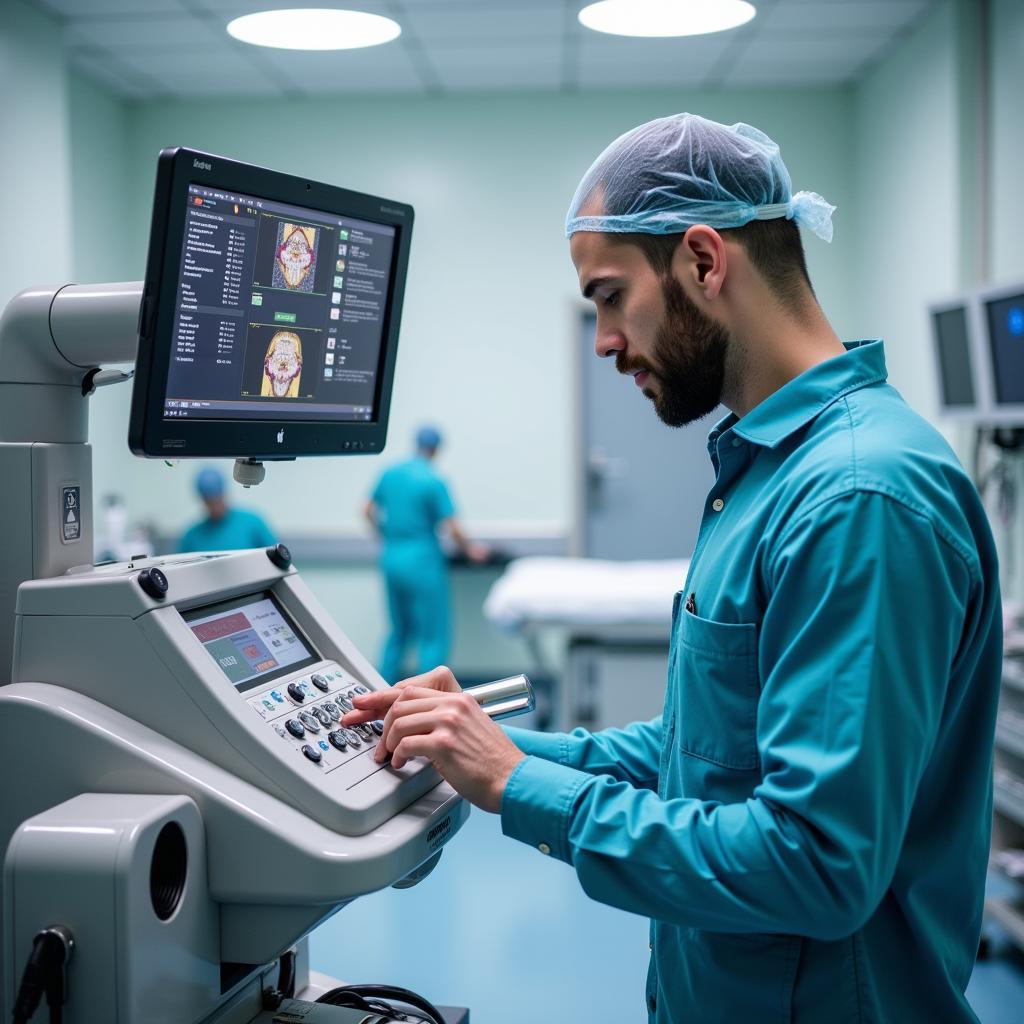Hospital Preventive Maintenance is crucial for ensuring the smooth operation of a healthcare facility and, most importantly, the safety and well-being of patients. A well-structured preventive maintenance program minimizes equipment downtime, extends the lifespan of critical assets, and reduces the risk of unexpected failures that could compromise patient care. By proactively addressing potential issues, hospitals can create a safer and more efficient environment for both patients and staff. See how a robust program can benefit your facility.
The Importance of a Proactive Approach to Hospital Preventive Maintenance
Preventive maintenance in a hospital setting goes beyond simply keeping equipment running. It’s about creating a culture of proactiveness that prioritizes patient safety and operational efficiency. Regular inspections, scheduled maintenance, and timely repairs all contribute to a more reliable and predictable healthcare environment. This proactive approach minimizes disruptions, reduces costs associated with emergency repairs, and ensures that medical equipment is always operating at peak performance. A well-maintained facility also projects an image of professionalism and inspires confidence in patients and their families. Investing in hospital preventive maintenance is an investment in the future of your hospital. After the initial investment, you can expect lower operating costs in the long run due to extended equipment lifespans. For more insight into hospital-related mechanical systems, visit hospital mechanical.
 Hospital Preventive Maintenance Technician Inspecting Equipment
Hospital Preventive Maintenance Technician Inspecting Equipment
Key Components of an Effective Hospital Preventive Maintenance Program
An effective hospital preventive maintenance program encompasses a wide range of activities designed to address all aspects of facility upkeep. This includes:
- Regular Inspections: Routine inspections help identify potential problems before they escalate into major issues. These inspections should cover all critical equipment and systems, including HVAC, electrical, plumbing, and medical devices.
- Scheduled Maintenance: Developing a comprehensive schedule for routine maintenance tasks, such as filter replacements, lubrication, and calibrations, is essential. This ensures that equipment receives the necessary attention at the right time, preventing premature wear and tear.
- Predictive Maintenance: Utilizing data analytics and sensor technology to predict potential equipment failures can significantly reduce downtime and optimize maintenance schedules.
- Emergency Preparedness: Having a plan in place for emergency repairs and equipment replacements is crucial for minimizing disruptions in the event of unexpected failures.
- Documentation and Record Keeping: Maintaining detailed records of all maintenance activities, including inspections, repairs, and parts replacements, is essential for tracking performance and identifying trends. You may also be interested in learning about incident report hospital sample.
What are the benefits of Hospital Preventive Maintenance?
Properly maintained equipment is less likely to malfunction, reducing the risk of disruptions to patient care.
How can Hospital Preventive Maintenance improve patient safety?
By ensuring equipment is functioning correctly, preventive maintenance minimizes the risk of accidents or errors that could harm patients.
Does Hospital Preventive Maintenance save money?
Yes, preventive maintenance can save money in the long run by reducing the need for costly emergency repairs and extending the lifespan of equipment. Consider also looking into biomedical equipment calibration for hospitals to extend the life of your equipment.
The Role of Technology in Hospital Preventive Maintenance
Technology plays an increasingly important role in optimizing hospital preventive maintenance programs. Computerized Maintenance Management Systems (CMMS) allow for efficient tracking of maintenance activities, scheduling of tasks, and management of inventory. Additionally, the integration of sensor technology and data analytics enables predictive maintenance, allowing hospitals to anticipate potential equipment failures and address them proactively.
Conclusion
Hospital preventive maintenance is a vital investment in the safety, efficiency, and overall success of a healthcare facility. By implementing a comprehensive and proactive approach, hospitals can create a more reliable and predictable environment, minimize disruptions, and ensure the highest quality of patient care. Remember, effective hospital preventive maintenance is not just about fixing things; it’s about preventing them from breaking in the first place. Learn more about healthcare options such as group hospitalization and medical.
If you need assistance, please contact us by phone at 02437655121, email [email protected], or visit our address at 298 Cau Dien Street, Minh Khai Ward, Bac Tu Liem District, Hanoi, Vietnam. We have a 24/7 customer service team available to help.